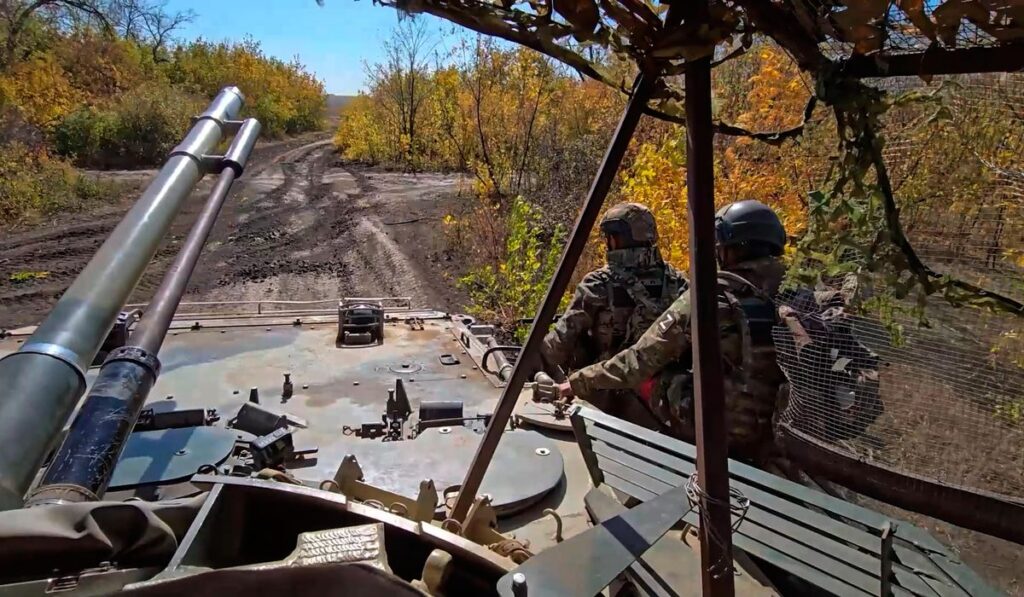Ukrainian officials say they struck a key fuel pipeline in the Moscow region that supplies Russian forces, and the move has raised fresh questions about logistics, resolve, and how the West should respond. This article looks at the tactical impact of that strike, the broader supply vulnerabilities it exposes, and why the Republican view favors a firm, strategic response that protects U.S. interests while backing allies on the front lines.
Ukrainian forces hit an important fuel pipeline in the Moscow region that supplies the Russian army, Ukraine’s military intelligence said Saturday. That claim puts the spotlight on how energy and fuel routes power modern warfare, and why disrupting them can change the tempo of operations. Strikes on logistics are not new, but targeting a pipeline inside or near Russia itself marks a notable escalation in reach and intent.
From a battlefield perspective, fuel is as decisive as ammunition or manpower. Armies grind to a halt without a steady flow of fuel, spare parts, and maintenance, and damaging pipelines forces the opponent to reroute, ration, and prioritize. Those ripples can buy time and space for defenders and complicate offensive timelines for attackers, which is exactly what Ukrainian planners seem to be counting on.
On the political side, this kind of operation presents hard choices for Western supporters. Republicans generally favor backing partners who fight bravely and take the initiative, but we also insist on clear objectives and exit strategies. That means providing the tools Ukraine needs to disrupt Russian logistics while ensuring U.S. involvement doesn’t drag us into open direct conflict with Russian forces.
There are also important implications for energy security at home and among allies. Attacks on pipelines underline how intertwined military plans and energy infrastructure have become, and why resilient domestic production and diversified supply chains matter. A Republican approach stresses strengthening U.S. energy independence so policy makers hold leverage and avoid being boxed in by coercive energy tactics abroad.
Legal and moral debates will follow any strike inside or near another country’s borders, and those debates are real and necessary. From a realist Republican view, however, moral clarity comes from supporting a free nation defending itself from aggression. That framework accepts difficult tactical choices while demanding accountability for civilian safety and adherence to the laws of armed conflict.
Practically, Russia will try to harden remaining fuel lines, increase security, and shift supplies to more cumbersome methods like tank trucks and rail, which are slower and easier to interdict. Those adjustments increase the logistical footprint and expense of sustaining an offensive, and they sap momentum. Over time, attrition of supply efficiency can tilt local advantages back to defenders who can exploit delays and shortages.
For Congress and the administration, the lesson is straightforward: provide Ukraine with tools that degrade an adversary’s ability to project force, from intelligence and precision munitions to defensive systems and maintenance support. Republicans argue that aid must be paired with oversight and clear outcomes, but also with speed and predictability so allies can plan and act decisively. Hesitation only hands the initiative to the aggressor.
At the same time, there’s a danger in normalizing escalation without limits. A measured Republican stance accepts tough support for partners while pushing allies to coordinate, deconflict, and establish red lines everyone understands. That coordination minimizes the risk of accidental confrontations and ensures pressure is applied in a way that maximizes strategic effect without unnecessary broader escalation.
On the home front, political leaders should use this moment to reinforce national resilience rather than reflexively voting to cut defense or energy capacity. The pipeline strike is a reminder that unconventional tactics can reach far beyond immediate battlefields, and the U.S. must be ready to back partners and protect American infrastructure. Investing in both deterrence and durable supply chains is a pragmatic strategy that aligns with Republican priorities of strength and self-reliance.
Finally, the tactical success of a single strike, real or reported, will not end a war. It can, however, reshape how campaigns are planned and how much effort an aggressor must expend to keep fighting. Republicans favor providing Ukraine the means to make such fights costly for their opponent while keeping American boots off foreign soil and American resolve unmistakable.



